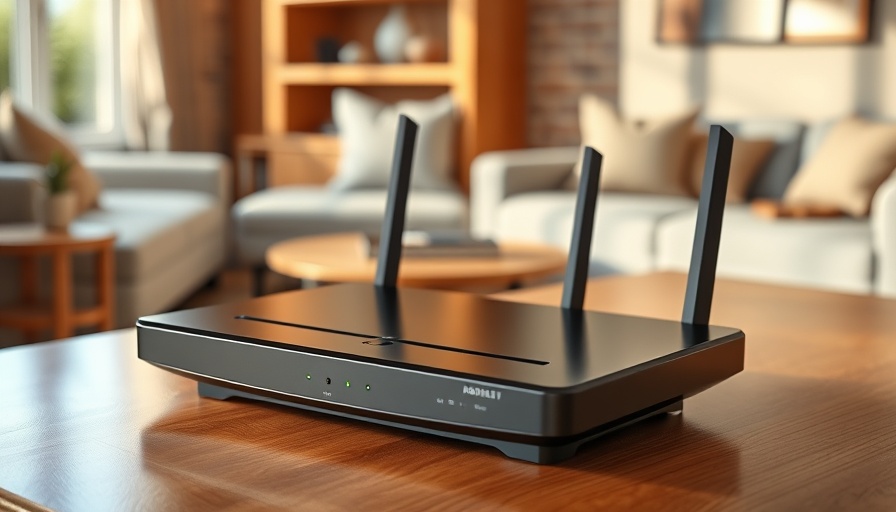
Unlocking the Future: The Best Smart Home Devices to Consider in 2025
As we mesh our lives more deeply with technology, the smart home device market is set to evolve spectacularly in 2025. With hundreds of products being tested across various categories, it's essential to pinpoint which devices can genuinely enhance our living spaces. From security features to energy efficiency, let's delve into the best smart home gadgets for the coming year, ensuring your home remains both fashionable and functional.
Why Smart Home Devices Matter
Smart home devices do more than just automate our routines; they offer significant benefits in showing how technology can make our lives easier and more enjoyable. In an era where sustainability is crucial, smart devices can help conserve energy, reduce waste, and ultimately contribute to a healthier planet. For example, smart thermostats learn your preferences and adjust heating or cooling based on your habits, which leads to reduced energy bills and a smaller carbon footprint.
Security Smart Devices: The Gatekeepers of Your Home
Safety is paramount in any household, and smart security devices have fundamentally changed the way we protect our homes. Products like smart doorbells with video capabilities or wireless camera systems allow homeowners to monitor their properties in real-time from anywhere in the world. With enhanced security features such as motion detection alerts and remote access capabilities, homeowners can feel at ease knowing they have an extra layer of protection.
Energy-Efficient Gadgets for a Greener Home
In a world dealing with climate change issues, energy-efficient smart devices are not solely a trend; they're a necessity. Smart bulbs can adjust brightness based on natural lighting, and connected outlets can manage energy use more effectively, providing real-time data on electricity consumption. By adopting these technologies, homeowners can significantly reduce their overall energy consumption while also lowering their utility bills.
Smart Home Automation: Convenience at Your Fingertips
Imagine walking into your home, and with a simple voice command, your lights turn on, your favorite playlist starts playing, and the thermostat adjusts to your chosen temperature. That’s the magic of home automation. Devices such as smart hubs allow users to control all their smart devices from one interface, maximizing both convenience and simplicity. As more homes adopt automation, the integration of various devices is bound to become more seamless, paving the way for an effortless lifestyle.
The Evolving Landscape: Future Trends in Smart Homes
Looking ahead, the smart home market is expected to expand, with advancements in AI and IoT technology driving innovation. This may include smarter home assistants that not only respond to voice commands but can also predict your needs based on data collected over time. Security will enhance further with biometric indicators, making homes safer than ever. For those investing in smart technology, understanding these trends will help position you ahead in creating a future-ready home.
Conclusion: Embrace the Smart Home Revolution
As smart devices will play a vital role in shaping the future of how we live, now is the perfect time to explore new technologies that can add comfort, security, and sustainability to our everyday lives. By choosing the right devices, you're not only enhancing your home but also embracing a lifestyle that promotes efficiency and well-being. So, as we approach 2025, consider which smart devices will not only match your needs but will also prepare your home for an exciting, tech-driven future.
 Add Row
Add Row  Add
Add 




Write A Comment